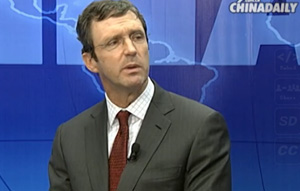Forbes names Wang Asia's businessman of the year
Updated: 2013-11-22 13:30
By Michael Barris in New York (China Daily USA)
|
||||||||
Wang Jianlin's real estate empire rests on a power trio of values: structure, culture and execution. They added up to his being named Forbes Asia's 2013 Businessman of the Year on Thursday.
"He is foremost among a rising crop of Chinese tycoons who are beginning to reshape global business," an article announcing the decision on the Forbes Inc magazine's website said. The article, written by senior editor and Forbes Shanghai bureau chief Russell Flannery, lauded Wang's "remarkable real estate record, his joining of traditional Sino sensibilities with modern business practices and his increasingly evident personal brio".
Until now, the 59-year-old chairman of Dalian Wanda Group, one of China's largest real estate developers and the world's largest operator of movie theaters, had been relatively unknown outside of China, despite being the country's richest man. Wang's $14 billion fortune earned him the top spot on Forbes China Rich List last month.
Erik Gordon, a professor at the University of Michigan's Ross School of Business, told China Daily that recognition from a US-based business magazine "shows people in the Chinese business community that (Wang) is known outside China - an important step for Chinese businesspeople who want to show that they are a success by global standards and not just as a player in China," Gordon said.
Getting the nod from Forbes, however, is unlikely to increase Wang's cross-border deal-making power, Gordon said. "To do deals outside China, a Chinese businessperson needs money, expertise, and an understanding of how differently business works in other countries. That is more important than being named in a magazine story".
Hairong Li, a Michigan State University advertising and public relations professor, said the Forbes title potentially allows Wang to increase his holdings. The Forbes recognition "lends a world reputation to Mr Wang, and such reputation will not only raise his status in China but also empower him in the global marketplace, making it easier for him to get bank loans, attract international talents, make mergers and acquisitions," Li said.
What is certain, is that Wang, the Chengdu-born eldest of five sons who didn't have enough to eat as a teenage solider, came a long way in a short time. In 2005, he made his debut on Forbes' China Rich List with a $309 million fortune. Within five years, he was on the magazine's 2010 Billionaire's List with $3 billion in wealth.
Ming-Jer Chen, a professor of strategic management at the University of Virginia's Darden School, said Wang's closely held global enterprise is founded on a "comprehensive organizational structure that allows it to scale up globally, in-depth corporate cultural content and very rich corporate cultural activities".
In other words, Chen told Forbes, Wang "rooted the company in Confucian values, which are lacking in Western society and business".
He also brings the discipline he acquired during a 16-year military career into his business affairs. "He attracts very good talent, trains personnel and holds them accountable for project execution," Chen said. It's this "complete integration of culture-strategy-execution under one roof that sets Mr Wang apart and has led to his and Wanda's success".
Exemplifying Wang's embrace of Confucianism, earlier this year, after closing his $2.6 billion acquisition of AMC Entertainment Holdings, based in Kansas City, Missouri, Wang donated more than $1.3 million to public high schools in the city and across the state line in Kansas City, Kansas. Weeks before making that gesture, he told Reuters that Chinese companies should try to do something American people would appreciate.
In 1986, after leaving the military, Wang worked in Dalian and turned around an unprofitable municipal property business that in 1992 became Dalian Wanda.
With $48 billion in assets, Wanda's holdings include 80 retail malls - with residential units the company sells - and 46 five-star hotels in China. His scooping up of struggling AMC, the largest US theater chain last year, was both part of a value-investing strategy and an endeavor to expand into new fields. Reflecting Wang's interest in making a mark in the movie business, in September, the tycoon broke ground on an $8 billion film industry hub in the eastern China city of Qing-dao.
He has also moved into luxury travel and leisure beyond China's borders. Earlier this year, Wanda acquired British yachtmaker Sunseeker and began construction on a 62-story hotel and apartment tower in London. Wanda also this year acquired Hong Kong-listed real estate company, Hengli, and this month raised $600 million in a bond sale.
michaelbarris@chinadailyusa.com
(China Daily USA 11/22/2013 page1)
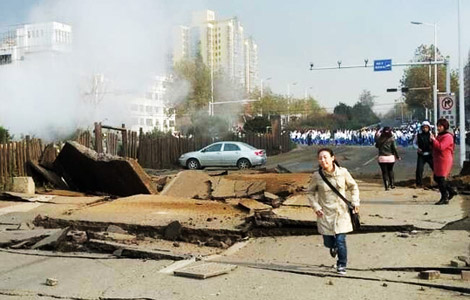
 Oil pipeline blast leaves 22 dead in E China
Oil pipeline blast leaves 22 dead in E China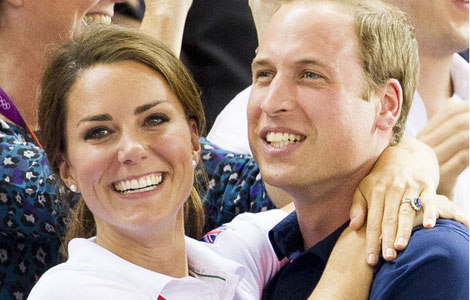
 Good couples get better
Good couples get better
 More than 9m Syrians need humanitarian aid
More than 9m Syrians need humanitarian aid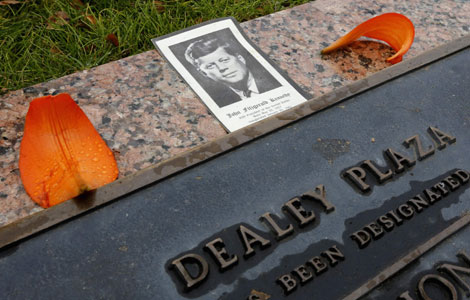
 50th anniversary of the assassination of Kennedy
50th anniversary of the assassination of Kennedy Blueprint tightens EU links
Blueprint tightens EU links
 Beckham promotes bodywear in Shanghai
Beckham promotes bodywear in Shanghai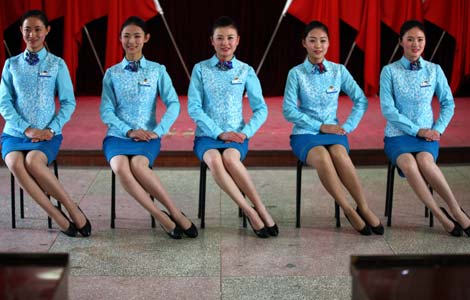
 Service seminar for E China train attendants
Service seminar for E China train attendants
 Kennedy cousin Skakel poised for prison release
Kennedy cousin Skakel poised for prison release
Most Viewed
Editor's Picks

|

|

|

|

|

|
Today's Top News
Forbes names Wang Asia's businessman of the year
Bitcoin rollercoaster hits China
US President sets new date for Asia visit
Bid to boost people ties
Manufacturing PMI seen moderating in Nov
Kennedy cousin Skakel poised for prison release
'Tapering' of QE would benefit world
Blueprint tightens EU links
US Weekly

|

|
